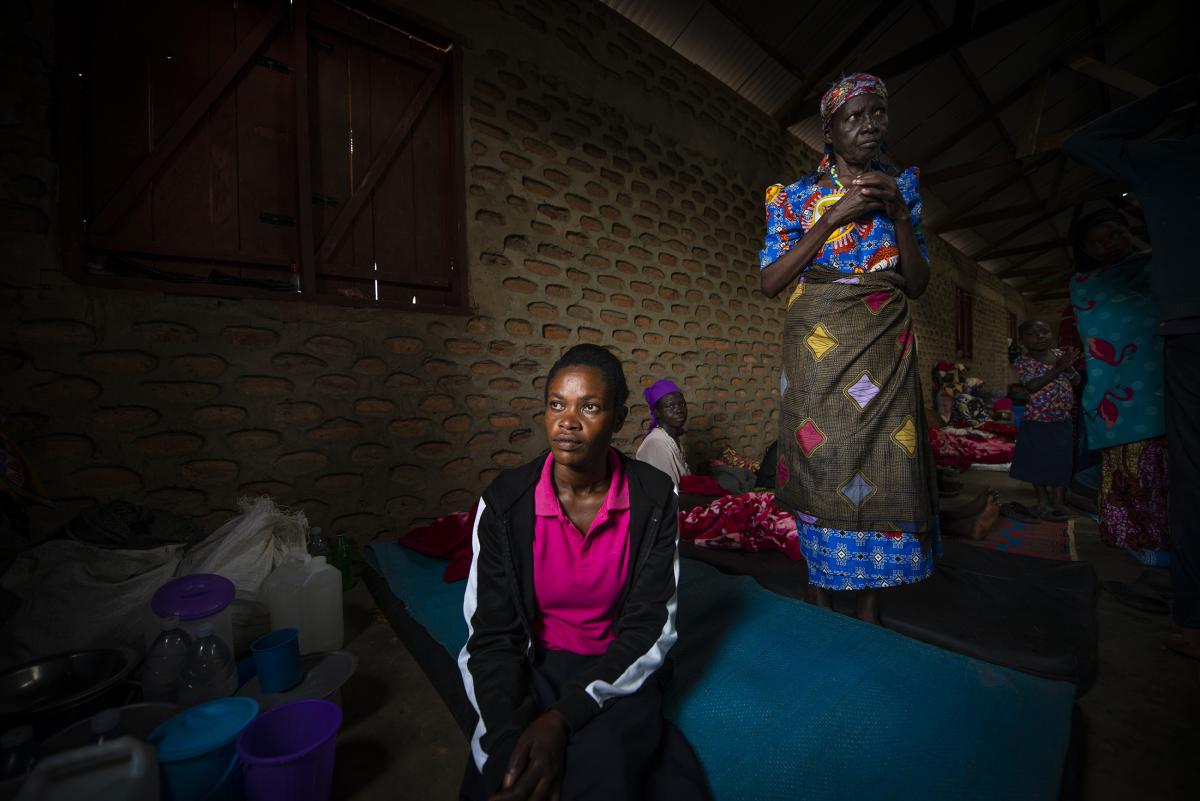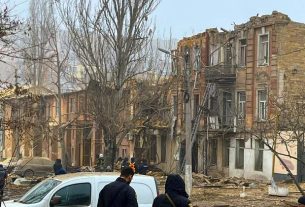Riziki Bagyeraka’s life crumbled in late October last year, when rampaging gunmen from a local rebel group in the Democratic Republic of the Congo stormed into her village in the country’s eastern province of North Kivu.
“It was at night, and we all woke up by shouting and gunfire,” she said, sitting on a mattress in a barren brick building in Nakivale, a vast EU-supported refugee settlement in neighboring Uganda. “They shot and stabbed people, and grabbed women to rape.”
The village was soon set ablaze and Riziki managed to join a small group of villagers as they fled into the surrounding bush. In the chaos, she was separated from her 2 children, aged 12 and 15.
“I was crying because I couldn’t find them, but I couldn’t go back,” she said. “I was hiding with others for hours. We saw our village burn.”
At dawn, the villagers started walking, eventually managing to get onto a truck bound for Nakivale. There, Riziki joined some 200,000 other refugees who have arrived in Uganda since the beginning of 2022, a majority of them from Congo.
“I’ve tried to find my children ever since I got here,” she said. “But I have no contacts, no phone numbers.”
Another newly-arrived refugee, Pascal Chisajira, said he is haunted by nightmares ever since rampaging rebels stormed his Congolese village in August last year.
“I hid behind our house when I saw them,” he said. “They entered my house and asked for money. When my father couldn’t give them any, they hacked him and my brother to death with machetes.”
In happier times, Pascal used to run a small store selling rice, corn and other staples. He now wants to stay in Uganda, to study and perhaps start another business.
“It’s good here,” he said. “I feel safe and welcome.”
All told, nearly 1.6 million people from across east and central Africa have fled to Uganda, the largest host county for refugees on the continent – and the 4th largest in the world. Most have escaped eastern Congo, where violence linked to the country’s many armed rebel groups has displaced a staggering 6.9 million people.
Congo has been in a state of large-scale humanitarian crisis since the mid-90’s, but the situation deteriorated alarmingly for millions of people in the past year.
Some 1.5 million Congolese were driven away from their homes in the first 6 months of 2023 alone, as fighting has continued unabated between the M23 rebel group and government troops in a region already scarred by the presence of dozens of armed gangs.
The oldest refugee settlement in Africa, Nakivale benefits from what is often lauded as the most progressive refugee policies in the world. Newcomers are given plots of land and are free to leave the settlement whenever they want.
The constant influx of new refugees however, has made tracts of arable land increasingly scarce.
“Uganda is a role model for welcoming refugees, but the constant influx of new arrivals is of course very challenging for the county,” said Bruno Rotival, who oversees EU humanitarian programs in Uganda.
To help the Ugandan government sustain their uniquely generous refugee policy, the EU has boosted its humanitarian support to the country, which has amounted to €282 million since 2017.
Last year, in addition to the initial allocation of €30.5 million, the EU mobilised an additional €5 million to address the refugee influx, food insecurity and epidemics. Some of the support goes toward cash assistance, enabling people to farm, start businesses and put their children into school.
Mukangyenzi Godliver, 40, has lived in the camp ever since her family escaped the Rwandan genocide in 1994 and is now raising 6 children on her own.
Through the EU’s partner Norwegian Refugee Council (NRC) she has received seeds, tools and training in order to start her own vegetable garden, growing cassava and corn. A cash grant has also helped her children attend school.
“My life has changed, but it’s still hard,” Mukangyenzi said. “But I’m hoping that my children will become educated and have a better future.”



